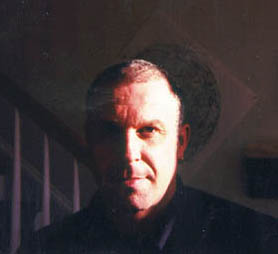
15 October 2010
by Justice Putnam
Black Kos Poetry Editor
When the Roberts Court handed down the decision in the Lilly Ledbetter case, the opinon proffered by Samuel Alito was there was no constitutional issue. Ledbetter was denied her back pay because of statutory limitations on her right to sue; she was deemed to have brought the charges beyond the 180 day limit set by law. Never mind that she didn't know she was being discriminated against; never mind that Goodyear made talk of pay among her and her fellow workers a firing offense. Never mind that Ledbetter followed the provisions has specified in her contract.
When it was discovered that the male managers (and only the male managers, mind you) at her Goodyear plant were privvy to each other's pay, Alito held that Ledbetter must have known as well; that she should have and could have sued for back pay, rather than waiting beyond the 180 limit.
Fortunately, the Obama Administration signed a bill into law that addresses the inequity of the Roberts Decision. The new law didn't recoup Ledbetter's back pay, but it did protect other women from the discrimination that Ledbetter suffered.
Therein lies the problem. From inequities in pay and promotions, to the uneven field of sexual politics; women have always been held to...
A Double Standard
Do you blame me that I loved him?
If when standing all alone
I cried for bread a careless world
Pressed to my lips a stone.
Do you blame me that I loved him,
That my heart beat glad and free,
When he told me in the sweetest tones
He loved but only me?
Can you blame me that I did not see
Beneath his burning kiss
The serpent’s wiles, nor even hear
The deadly adder hiss?
Can you blame me that my heart grew cold
That the tempted, tempter turned;
When he was feted and caressed
And I was coldly spurned?
Would you blame him, when you draw from me
Your dainty robes aside,
If he with gilded baits should claim
Your fairest as his bride?
Would you blame the world if it should press
On him a civic crown;
And see me struggling in the depth
Then harshly press me down?
Crime has no sex and yet to-day
I wear the brand of shame;
Whilst he amid the gay and proud
Still bears an honored name.
Can you blame me if I’ve learned to think
Your hate of vice a sham,
When you so coldly crushed me down
And then excused the man?
Would you blame me if to-morrow
The coroner should say,
A wretched girl, outcast, forlorn,
Has thrown her life away?
Yes, blame me for my downward course,
But oh! remember well,
Within your homes you press the hand
That led me down to hell.
I’m glad God’s ways are not our ways,
He does not see as man,
Within His love I know there’s room
For those whom others ban.
I think before His great white throne,
His throne of spotless light,
That whited sepulchres shall wear
The hue of endless night.
That I who fell, and he who sinned,
Shall reap as we have sown;
That each the burden of his loss
Must bear and bear alone.
No golden weights can turn the scale
Of justice in His sight;
And what is wrong in woman’s life
In man’s cannot be right.
-- Frances Ellen Watkins Harper



